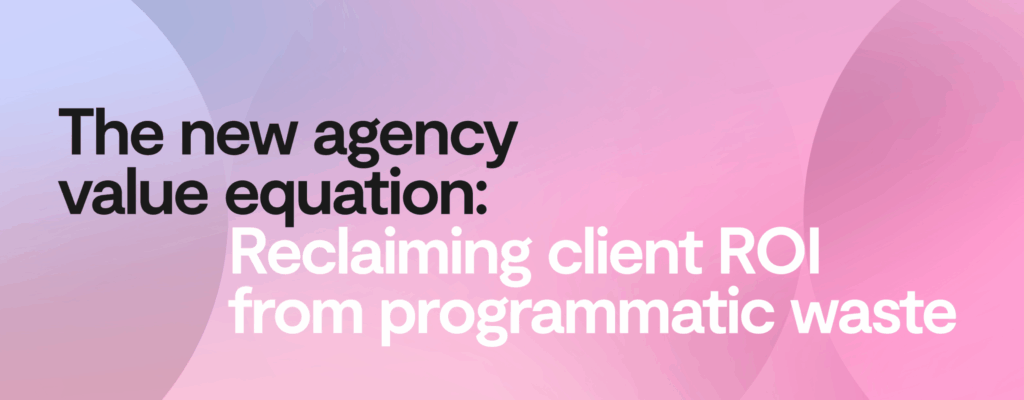- Blog
- Privacy
Why privacy is an influential force within the advertising ecosystem
Joanna Duffy, Product Marketing Manager at Permutive, shares top privacy themes for 2022 and beyond. What do you see as critical for advertisers, agencies and publishers to consider and plan for when it comes to privacy? Expectations around privacy aren’t going away– not from increasingly privacy-literate consumers, not from the businesses exploring ways to insulate themselves from market changes while reassuring these consumers, and certainly not from regulators. Privacy and data protection will continue to be influential forces within the advertising ecosystem. Organisations that have gotten by with short-term, reactive approaches should expect to have those approaches tested, and feel…

Joanna Duffy, Product Marketing Manager at Permutive, shares top privacy themes for 2022 and beyond.
What do you see as critical for advertisers, agencies and publishers to consider and plan for when it comes to privacy?
Expectations around privacy aren’t going away– not from increasingly privacy-literate consumers, not from the businesses exploring ways to insulate themselves from market changes while reassuring these consumers, and certainly not from regulators.
Privacy and data protection will continue to be influential forces within the advertising ecosystem. Organisations that have gotten by with short-term, reactive approaches should expect to have those approaches tested, and feel more chaos.
European regulators are shaking things up. Recently the Austrian data regulator, Datenschutzbehörde, found the use of Google Analytics on a medical news website to be in violation of GDPR, specifically with regards to data transfer. What’s more, the Netherlands’ Autoriteit Persoonsgegevens is currently investigating two complaints surrounding Google Analytics. Its website currently includes a warning that the use of Google Analytics may soon be illegal. While European data regulators aren’t necessarily always all on the same page, we can expect to see the impact of these findings beyond these countries’ borders.
In two recent decisions, the French Commission Nationale de L’informatique et des Libertés fined Facebook and Google for making the refusal of cookies more difficult than their acceptance. Belgium’s Autorité de protection des données/Gegevensbeschermingsautoriteit declared the IAB Europe’s Transparency and Consent Framework to be in violation of the GDPR earlier this month. And if the Regulation on Privacy and Electronic Communications passes, legitimate interest will no longer be a viable basis for collecting data on online behaviour – end-user consent will be a requirement.
European regulators are sending the message that consent and end-user privacy matter, and cannot be sacrificed for the sake of an interface. They’re in tune with public opinion. Research from the UK’s Centre for Data Ethics and Innovation has found that targeted advertising is consistently met with suspicion and “almost universal disapproval,” while Nielsen has concluded that consumers in Europe and North America have up to 20% less trust in advertising than their contemporaries in other regions.
What does all this mean for publishers, agencies and advertisers?
It means that Google’s deprecation of third-party cookies wasn’t and isn’t the only reason to take privacy and its impact on addressability seriously. Direct collaboration is crucial, and workarounds aren’t sustainable. Partnership will only make sense if it’s based on a long-term vision that prioritises safeguarding user data. There really isn’t time to lean back and watch how things play out: advertisers, agencies and publishers need to strategize to adapt, evolving to put privacy and consumer trust at the core of their businesses.
What are the biggest threats to data privacy?
Inaction.
That and cynical definitions of privacy that prioritise the hoarding of data within certain platforms or ecosystems. They are power plays masquerading as privacy initiatives that reduce consumer trust and risk lowering morale within the industry at a time when collaboration is key. We need a supply chain that prioritises a fair value exchange for publishers, advertisers and consumers– not monopolies.
What should companies be focusing on right now?
To remain sustainable, publishers and brands need to start selecting their partners for the road ahead. They need to do so purposefully, asking questions like “How can my tech stack adapt to the privacy landscape? Will it help me transition away from dependency on unsustainable data sources? Will it connect me to partners that align with my privacy goals? Am I investing solely in technology or a team of supportive experts who will guide me in crafting and refining a strategy?”
For advertisers and agencies, establishing more direct relationships with publishers should be a priority. Publishers have strong, trusted relationships with their audiences. They also have a history of being disenfranchised by an opaque adtech supply chain and have been pioneers in adapting their business models to embrace first-party data and maximize consumer trust. They can offer quality, first-party audiences – as well as plenty of wisdom on how to future-proof.
Amidst the future-proofing, we shouldn’t lose sight of the needs of the end-user; finding the balance in facilitating an enjoyable and intuitive online experience that doesn’t violate personal privacy. Achieving this requires a culture of responsibility that impacts everything from partnerships, to hiring, to product choices and education.
For more information on building a privacy-compliant first-party data strategy book a demo.
You may be interested in
From scale to accountability: The new agency value equation
Learn MoreThe curation revolution: Rebuilding trust and transparency in programmatic
Learn MoreKeep going, there's more to uncover.
From scale to accountability: The new agency value equation
Discover how leading agencies are rebuilding efficiency and accountability in programmatic media. Learn the 3-step blueprint to reclaim ROI, reduce waste, and deliver verifiable performance through data-enriched PMPs.
The curation revolution: Rebuilding trust and transparency in programmatic
Discover how leading agencies are rebuilding efficiency and accountability in programmatic media. Learn the 3-step blueprint to reclaim ROI, reduce waste, and deliver verifiable performance through data-enriched PMPs.
The performance paradox: Why programmatic efficiency is broken
Discover how leading agencies are rebuilding efficiency and accountability in programmatic media. Learn the 3-step blueprint to reclaim ROI, reduce waste, and deliver verifiable performance through data-enriched PMPs.
The new agency value equation: Reclaiming client ROI from programmatic waste
Discover how leading agencies are rebuilding efficiency and accountability in programmatic media. Learn the 3-step blueprint to reclaim ROI, reduce waste, and deliver verifiable performance through data-enriched PMPs.
Curation as a revenue diversification strategy: Lessons from The Arena Group
The Arena Group is finding new ways to take control of its data and revenue. Discover their powerful new approach centered on curation.
How Acxiom and Fundamental Group are solving for the Outcomes Era
Acxiom’s Ruowen Liscio and Fundamental Group’s Angus Maclaine discuss solutions for the Outcomes Era in advertising. Discover how predictive targeting, curation, and AI are delivering results in a privacy-first world.





